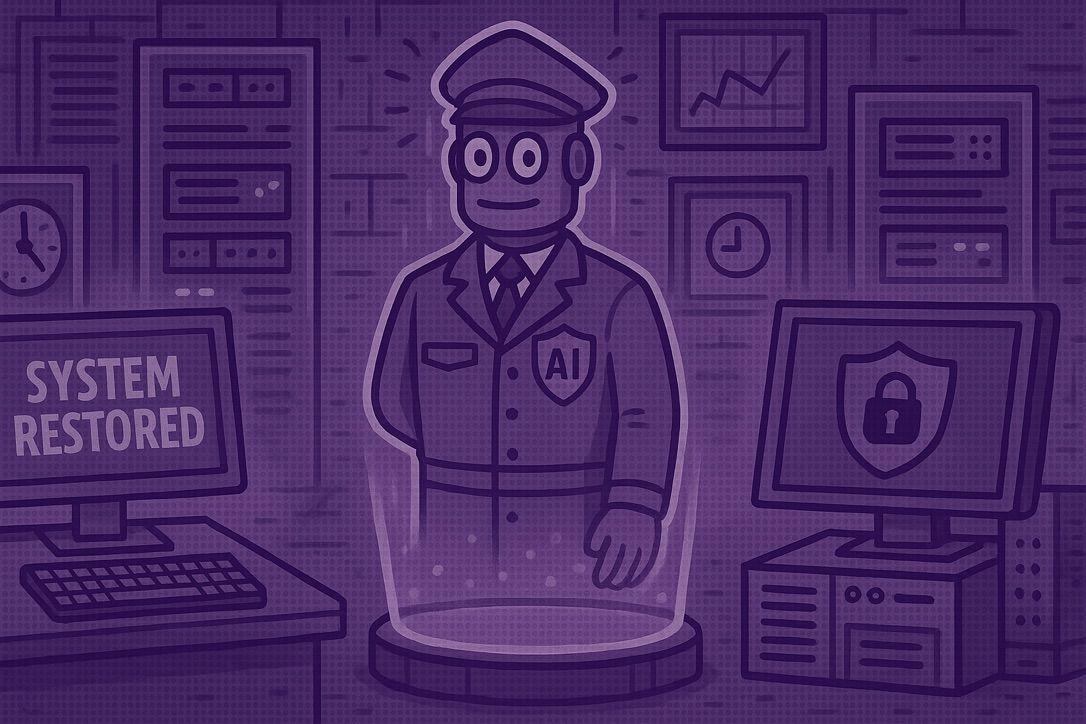- AI
How will quantum computing affect artificial intelligence applications?
Oct 5, 2023
-
Michał Kułaczkowski
-
5 minutes

While the term "quantum computing" may still sound like science fiction to many individuals, the feasibility of a quantum computer was already proven in 1998. Nevertheless, engineers are still grappling with complex challenges that limit the practical application of quantum computing in real-world scenarios.
Currently, several prominent tech companies, including IBM and Microsoft, are dedicated to enhancing the practical applications of quantum mechanics. Battery technology advancements, financial modeling, and cybersecurity stand out as key research focus areas. Additionally, training machine learning algorithms using quantum computers has garnered significant attention.
Explore this article further to discover how the synergy between quantum computing and artificial intelligence brings mutual benefits and learn the current issues quantum computing researchers are facing.
Quantum computers are much faster than classical computers. This key characteristic, which results from using quantum bits, or qubits, instead of traditional bits, is also the major difference between quantum and classical computers.
Quantum computers possess the remarkable capability of solving computational problems exponentially faster, thanks to the phenomenon of superposition. This term refers to the ability of qubits to exist in multiple states simultaneously.
Another potent characteristic of qubits is entanglement, which enables them to establish correlations irrespective of the physical distance separating them. In combination, these properties of qubits have the potential to accelerate data processing and resolve the complex optimization problems that typically impede the performance of classical computers.
Owing to the distinctive capabilities outlined above, quantum computing has the potential to optimize artificial intelligence and data science. At the same time, this optimization equips scientists with more robust tools for exploring quantum mechanics and advancing the development of even more potent and error-free quantum computers. This symbiotic relationship between these two fields of research holds the promise of mutual advancement. Further details about their synergy are presented below.
Besides mining cryptocurrencies such as Bitcoin, which are based on the proof-of-work protocol that requires solving a hash algorithm, training machine learning models, especially deep neural networks, is the most energy-consuming computational operation performed by modern machines.
The ability of quantum computing to process substantial volumes of data and solve complex problems in significantly less time can bolster the advancement of artificial intelligence in the future.
Accelerating model training not only leads to cost savings but, in specific scenarios, can be life-changing. For instance, in the context of researching a newly identified infection causing a pandemic, an application based on machine learning and AI can have a profound impact.
Another critical example highlighting the importance of enhanced AI system performance is fraud detection and alarm systems.
The computational speed supported by quantum technology is of immense significance whenever faster decision-making is essential.
While quantum computing can greatly accelerate the performance of machine learning models, this technology can also enable the general optimization of the complex algorithms behind AI.
Here are some applications of quantum computing promoting the optimization of AI systems.
AI systems often operate in a vast space of search data, which sometimes leads to relatively slow decision-making. One of the solutions to this problem is provided by quantum algorithms, for instance, the Quantum Approximate Optimization Algorithm (QAOA).
NLP, or natural language processing, is one of the most energy-consuming tasks performed by AI systems. Rapid analysis of large amounts of data using quantum computing is not only critical to the speed of an intelligent system's performance but can also improve the accuracy of the results. Quantum computing can increase the quality of machine translation, sentiment analysis, and many other tasks.
In addition to machine learning models, many artificial intelligence-based applications use complex simulations. Climate modeling, drug discovery, and materials science are some examples of such systems. These models themselves require much more powerful hardware solutions, and quantum computing can help researchers meet these requirements.
Quantum computing can help people leverage the full potential of artificial intelligence. By harnessing the new source of computational power, data scientists and machine learning developers will have the opportunity to build even more sophisticated systems with enhanced cognitive capabilities to solve some of the most complex tasks, such as natural language understanding or autonomous driving.
As with virtually any technology, there are certain issues related to quantum computing.
One of the most significant challenges researchers are currently facing is creating error-free quantum computers that can be deployed on a large scale. The hardware problem is exacerbated by the difficulty of integrating this innovative form of computing with existing software infrastructure, including AI. The lack of user-friendly tools will also hinder the adoption of quantum computing.
On top of that, one of the greatest problems is security. The development of powerful computing will inevitably lead to its exploitation by malicious actors, who will be able to carry out more and more sophisticated cyberattacks. Meanwhile, applications that rely on artificial intelligence are particularly vulnerable because they have access to a large amount of data that requires increased security.
Although quantum computing will also enable the development of more powerful security systems, the outcome of this race is difficult to predict.
The possibilities that quantum computing can offer its users exceed those of classical computing. However, realizing the full potential of the new technology and adopting it in real-world applications is still a great challenge. Quantum computing can revolutionize artificial intelligence systems by speeding up their work, improving the accuracy of results, increasing the cognitive capabilities of software, and supporting the development of increasingly complex machine learning algorithms and simulations.
However, one of the greatest risks associated with quantum computing is the evolution of cyber attacks, which can pose a serious threat to all areas of digital application, particularly artificial intelligence.

Did you know you can reduce business downtime with AI? See how tools from smart monitoring to predictive maintenance keep your business online.

From innovation to intrusion? AI’s use of data scraping is raising more than a few red flags for privacy and consent - find out where the line is being crossed.

Explore how AI transforms cybersecurity with intelligent threat detection, advanced tools, and smarter defense systems. Is your organization ready to keep up?